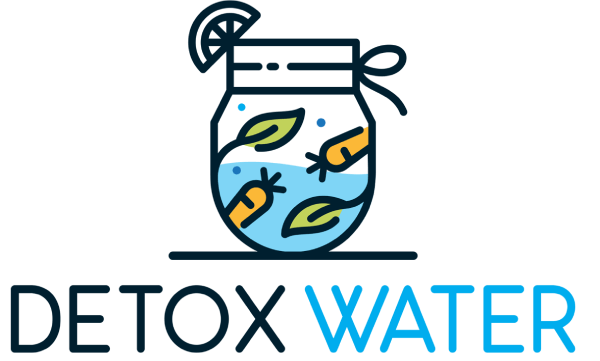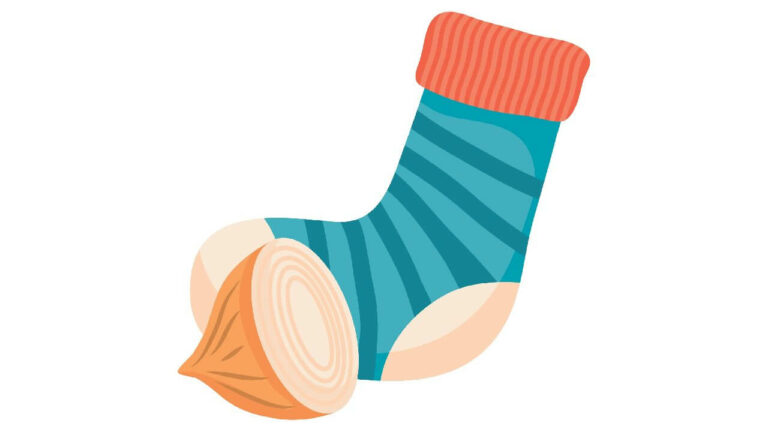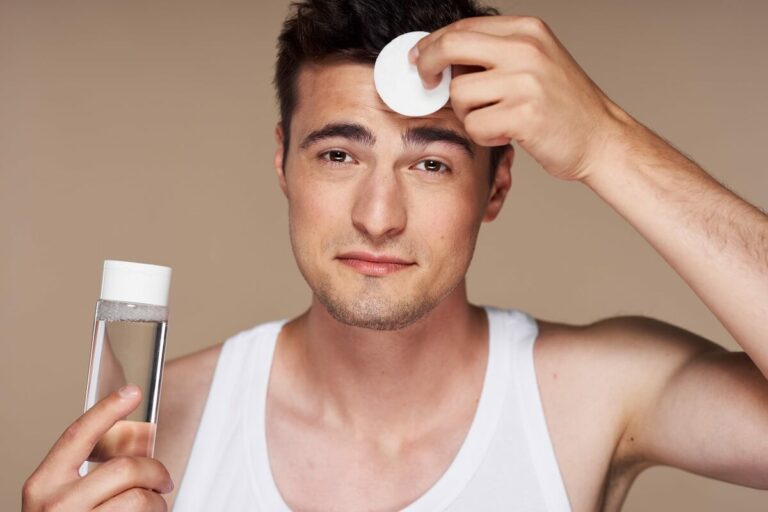Caffeine Detox: What to Expect and How Long It Will Take

As a caffeine aficionado, you know that regularly consuming coffee over a long period can eventually lead to dependence.
Sure, it’s excellent for that short-term energy boost, but inevitably, your body starts craving some rest and recuperation. So, how long does it take to detox from caffeine, and what’s the best strategy? Fear not; your quest for answers ends here.
We’ve got the details on how long it takes and the most effective approach when taking a break from those cappuccinos, sodas, and other caffeinated delights!
Contents
Caffeine Withdrawal Symptoms and Timeline
Understanding caffeine withdrawal symptoms is crucial when attempting to reduce or quit caffeine. Common symptoms of caffeine withdrawal include:
- Craving for more caffeine-rich drinks
- Headaches
- Fatigue
- Mood changes, such as irritability, anxiety, or depression
- Flu-like effects, like muscle aches, chills, or nausea
Caffeine Withdrawal Timeline: From Day 1 to Caffeine-Free Bliss
Caffeine withdrawal can vary in duration and intensity depending on factors like your caffeine intake and individual sensitivity. Here’s a general timeline of what to expect when you quit caffeine:
Day 1: The calm before the storm. You will notice the first symptoms within 12-24 hours after your last drink containing caffeine, but they’re usually mild. For example, you might experience slight tiredness, dizziness, or a mild headache.
Days 2-9: Brace yourself! Withdrawal symptoms typically peak during this period. You may experience more intense caffeine withdrawal headaches, extreme fatigue, irritability, and difficulty concentrating.
Weeks 2-4: The light at the end of the tunnel. Gradual symptom improvement occurs as your body adjusts to the absence of caffeine. Expect to see a decrease in headaches and an improvement in mood and energy.
Beyond a month: For most people, withdrawal symptoms will have subsided by this point. However, in rare cases, some individuals may experience prolonged withdrawal symptoms, such as lingering fatigue or mood changes. If symptoms persist, consider seeking medical advice.
Tips for Managing Caffeine Withdrawal
To manage withdrawal symptoms and make the detox process more comfortable, consider these tips:
Reduce caffeine consumption slowly: Decreasing caffeine intake over a few weeks can help minimize withdrawal symptoms.
Lower your sleep debt: Prioritize getting sufficient sleep during caffeine detox, as fatigue is one of the most common withdrawal symptoms.
Drink plenty of water: Staying hydrated can help alleviate headaches and other withdrawal symptoms.
Exercise: Regular physical activity may help alleviate withdrawal symptoms by improving blood flow and boosting mood.
Natural Alternatives to Caffeine
You are in luck if you’re looking for an energy-boosting drink that doesn’t involve red bull or a latte. Plenty of natural alternatives to caffeine can help boost your energy and sharpen your focus, minus the jitters and crashes.
Review some popular caffeine-free options to supercharge your day while keeping you cool, calm, and collected.
Herbal Teas
Who said tea time was just for older people? Herbal teas can provide a gentle, sustained energy boost without the caffeine content found in traditional teas and coffee. Some great options include:
Ginseng tea: This root-based brew is famous for its energizing and stress-reducing properties. Ginseng tea can help you stay focused and alert throughout day 1.
Peppermint tea: Peppermint tea is your go-to pal for an uplifting afternoon boost. Not only is it refreshing, but it’s also said to be good for digestive health, making it a double win.
Superfoods for Super Energy
They say you are what you eat, so why not eat your way to energized bliss? Here are some superfoods that can naturally rev up your energy levels:
Dark chocolate: Surprise! Dark chocolate is delicious and a great source of energy-boosting nutrients, such as magnesium and antioxidants. Just remember, moderation is vital to avoid consuming too many calories.
Goji berries: These little red gems are packed with vitamins and minerals that can help increase your stamina and mental clarity. Sprinkle them on your yogurt or oatmeal for a tasty, energizing treat.
Energy-Boosting Breathing Techniques
Next time you need a caffeine-rich drink, harness the magic of your breath! Breathing techniques can unlock a fountain of natural energy. Give these two methods a try:
Deep diaphragmatic breathing: Let go of those shallow breaths and take slow, full breaths that fill up your diaphragm. This technique amps oxygen flow, ushering in relaxation and a crystal-clear mind.
Alternate nostril breathing: Hailing from ancient yoga practices, this method has you breathe through one nostril at a time, alternating with each breath. Believed to harmonize energy levels and sharpen mental focus, it’s fresh air for your mind and body.
Detoxing Your Body from Caffeine: A Step-by-Step Guide
Let’s explore a detailed, step-by-step guide on how to detox your body from caffeine while ensuring that your caffeine withdrawal symptoms are manageable.
1. Assess your current caffeine consumption
Before you dive into your detox journey, Start by taking note of how much caffeine you consume daily.
Jot down all the caffeinated drinks you drink daily, like coffee, energy drinks, and fizzy sodas.
Don’t forget to include sneaky sources of caffeine like chocolate and over-the-counter medications.
Calculate the total amount of caffeine you consume daily to establish a baseline and set realistic goals for reduction.
2. Gradually reduce caffeine intake
Instead of quitting caffeine cold turkey, take a gentler approach by gradually decreasing caffeine consumption.
This method can minimize caffeine withdrawal syndrome and unpleasant withdrawal symptoms.
Each week, reduce your caffeine intake by 10-20%, allowing your body to adjust.
3. Stay hydrated
Water is your best friend during caffeine detox. Staying hydrated can help flush caffeine out of your system and alleviate caffeine withdrawal headaches.
Aim to drink at least eight 8-ounce glasses of water per day. You can also try drinking herbal teas or infused water to keep things interesting.
4. Prioritize sleep
Getting enough rest is crucial during caffeine detox, as fatigue is one of the most common caffeine withdrawal symptoms.
Establish a consistent sleep schedule, and make your sleep environment as comfortable as possible.
Try relaxation techniques like deep breathing exercises, meditation, or gentle stretching before bedtime to improve sleep quality.
5. Swap out caffeinated beverages
As you dial down your caffeine consumption, consider swapping your go-to caffeinated beverages for wholesome alternatives.
For instance, you could swap your cup of joe for green tea, which not only has a lower caffeine kick but also brings extra health perks to the table. Herbal infusions and caffeine-free energy drinks can also be fabulous stand-ins.
6. Adopt a balanced diet
Eating a well-balanced diet can help support your body during caffeine detox. Incorporate nutrient-dense foods like fruits, veggies, whole grains, lean proteins, and healthy fats into your daily meals.
This will provide you with the essential nutrients and energy needed to combat caffeine withdrawal symptoms such as difficulty concentrating and depressed mood.
7. Exercise regularly
Regular physical activity can help alleviate caffeine withdrawal symptoms by improving blood flow, releasing feel-good endorphins, and boosting energy levels.
Aim for at least 30 minutes of moderate exercise most days of the week. Choose activities you enjoy, like walking, swimming, or yoga, to increase the likelihood of sticking with your routine.
The Benefits of Quitting Caffeine
Now that you know what to expect if you quit your caffeine intake. Let’s delve into the countless benefits waiting for you on the other side.
Improved Sleep Quality
One of the most significant advantages of quitting caffeine is better sleep. But, unfortunately, caffeine can meddle with your sleep cycle, stopping you from getting the rest you deserve.
Bidding farewell to caffeine can lead to deeper, more restorative sleep, leaving you feeling revitalized and refreshed.
More Stable Energy Levels
Wave farewell to the rollercoaster of energy spikes and crashes linked to caffeine intake! Letting go of the caffeine habit can help even your energy levels all day.
Instead of relying on caffeinated drinks for that jolt of energy, you’ll uncover your body’s natural energy groove, making it a breeze to maintain steady energy and focus.
Lower Blood Pressure
Consistent caffeine consumption can cause a short-lived uptick in blood pressure.
For some folks, quitting caffeine lowers blood pressure and lessens the likelihood of cardiovascular issues.
However, always chat with your healthcare provider before significant shifts in your diet or lifestyle.
Reduced Caffeine Dependence
Over the long haul, routine caffeine consumption can lead to dependence. Your body might start leaning on caffeine to function as it should, sparking caffeine cravings for more and more stimulants.
Giving up caffeine can shatter this cycle, liberating you from relying on stimulants to stay sharp and focused.
Reduced Anxiety and Improved Mood
Caffeine can exacerbate anxiety and contribute to mood swings.
Reducing or eliminating caffeine from your diet may lead to a calmer, more stable mood, making it easier to manage daily stressors and enjoy a more positive outlook.
Better Digestion
For some people, caffeine addiction can hurt their digestive system, causing stomachaches, acid reflux, or diarrhea.
If you are one of them, quitting caffeine can improve your gut health and reduce digestive discomfort, leading to a happier tummy and a more comfortable you.
Healthier Teeth
Caffeinated beverages like coffee and soda can stain your teeth and potentially contribute to tooth decay.
You can protect your pearly whites and maintain a brighter, healthier smile by cutting out these drinks.
Conclusion
Being familiar with the timeline of caffeine detox, getting acquainted with withdrawal symptoms, and scoping out caffeine-free options can pave the way for a smooth journey in quitting caffeine.
By slowly trimming your caffeine intake, drinking plenty of water, and putting sleep on the priority list, you’ll conquer caffeine withdrawal and relish the perks of a caffeine-free existence.
Remember that each person’s caffeine withdrawal story is unique, so give yourself a break, tune into your body, and savor the ride.
Caffeine Detox FAQ
Several questions often arise when discussing caffeine withdrawal and detox, such as:
Can I quit caffeine cold turkey?
Yes, it is possible to quit caffeine cold turkey but brace yourself for potentially more intense withdrawal symptoms. Gently easing off the caffeine pedal can help soften the withdrawal blow.
Does caffeine build up in your body?
No, caffeine doesn’t accumulate in your body. However, regular caffeine use can lead to dependence, making withdrawal symptoms all the more striking when you quit.
How long does caffeine withdrawal last?
According to the National Institute of Health, usually, symptoms kick in 12 to 24 hours after ditching caffeine, peak at 20–51 hours, and may linger for two to nine days.
Can caffeine stay in your system for days?
Yes. According to research, the levels of caffeine in your bloodstream max an hour later and stick around for several hours. After drinking a caffeine drink, half of the caffeine remains in your system for 6 hours. In some cases, caffeine takes over 10 hours to leave your body.
Is Quitting caffeine worth it?
Yes, quitting caffeine is worth it. The benefits speak for themselves – cutting back on caffeine can reduce anxiety, improve sleep, better nutrient absorption, pearly whites, balanced hormones, enhanced brain chemistry, and fewer headaches.
You might miss that morning coffee buzz, but the long-term benefits far outweigh the short-lived discomfort during withdrawal.
What happens to your body when you quit caffeine?
At first, you may face withdrawal symptoms like headaches, tiredness, and irritability. But don’t worry – these are temporary. Over time, you’ll likely bask in sounder sleep, more stable energy levels, and calmer nerves.

Rahul is a nutritionist and personal trainer with 3+ years of experience in the field of health coaching. He specializes in nutrition science, with a keen eye for how food choices, lifestyle habits, and physical activity impact our bodies.






